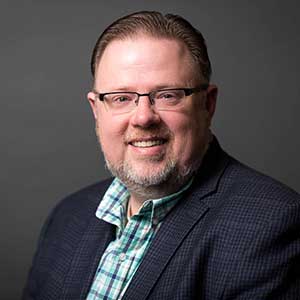Online Humanitarian Leadership major at a glance
North Central’s fully online, Christ-centered Humanitarian Leadership major will prepare you for leadership and service in both humanitarian crisis and relief organizations, as well as a variety of non-profit settings.
Benefits of an online degree at NCU
When you earn your degree online through North Central University, you will:
- Have meaningful communications with faculty
- Experience a rigorous academic program
- Receive online tutoring
- Benefit from academic success coaching
- Participate in virtual live chapel
Download a list of your future courses as a Humanitarian Leadership major.
Online Humanitarian Leadership major overview
| Delivery | Online |
| Structure | 8 week online courses |
| Credits | 120 |
| Tuition per credit | $395 |
| Technology fee (per semester) | $200 |
| Estimated total per semester (based on full-time enrollment level of 12-15 credits) | $4,940-$6,125 |
-
What you'll learn
When you graduate from the Humanitarian Leadership program, you’ll have the knowledge and skills for:
- Creating and serving in nonprofit organizations, or ministering to youth, children, and refugees in crisis.
Graduates with this degree will also be trained in conflict resolution and negotiation.
-
Real-world experience
The Humanitarian Leadership degree program includes experience in an international or stateside practicum to firmly root a biblical and theological understanding of compassion to those struggling in humanitarian crisis and relief situations.
Get real-life humanitarian experience to prepare you for your job after graduation!
-
Careers
Our graduates succeed in a variety of jobs and careers. Here are some possibilities:
- Humanitarian relief and development professional
- Non-profit organization founder
- Non-profit organization administration/leadership
- Youth ministry
- Family ministry
- Liaison for refugees and crisis situations
Requirements
All students must complete the General Education Core and Christian Studies Core. General electives may be added or an optional minor may be selected. You need 120 total credit hours to complete the Humanitarian Leadership degree.
Meet the dean
D. Allen Tennison, Ph.D.
Dean of the College of Church Leadership, Associate Professor of Theology
After living in Los Angeles for 15 years, I decided to move to Minneapolis in order to teach at North Central University. Even in the dead of winter, I am glad I made that move. North Central University is a fantastic community with a mission that I wholeheartedly support.
WHAT ARE YOUR AREAS OF EXPERTISE?
My education is in historical theology, and my specialty is the early development of Pentecostal theology, particularly pneumatology (doctrine of the Spirit). My interests include church history (which I taught for years in other schools), global and ecumenical theology, and the intersection of theology and culture, including the sciences.
WHAT DO YOU LOVE ABOUT TEACHING AT NORTH CENTRAL?
I have taught at a handful of schools since 2001, and never experienced the camaraderie among my peers that I have at North Central University. The students at NCU are also a pleasure to teach. I especially enjoy watching and guiding their development as some take class after class with me.
WHAT ARE YOUR FAVORITE CLASSES TO TEACH?
There is not a class that I don’t enjoy teaching, but the classes that I teach the most include “Pentecostal Distinctives” (covering the history and theology of the Pentecostal movement) and “God and the Gospel” which serves as our core theology class. I am excited about a number of classes currently in development that focus on the intersection of theology with the modern world. These classes, known as “worldview theology” classes, will answer significant questions such as “how do I faithfully navigate a world of diverse beliefs?”, “what does it mean to be human and what does that meaning require of me?”, “how can I contribute to and participate in contemporary culture?” and “what does it mean to work meaningfully in the modern world?”

